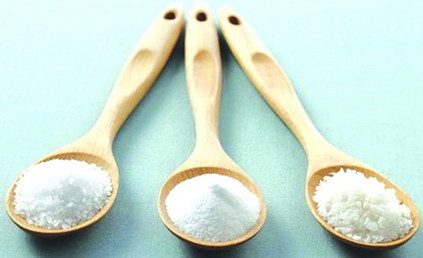
Cutting salt reverses signs of kidney disease - new research
The first physical signs patients are developing kidney disease can be reversed if patients cut their salt intake, new research has found.
The study, presented as an abstract at the world’s largest gathering of kidney specialists, the American Society of Nephrology Renal Week in Philadelphia, found high urinary levels of albuminuria were lowered when people reduced their dietary salt intake. Albumin is a normal component of blood, but its leakage into the urine can signal kidney damage and progression towards kidney failure. Further, people with higher levels of albumin in urine are more likely to suffer a heart attack or stroke.
In 2011–12, 1.3 million (or 7.7%) Australians aged 18 years and over had albuminuria. Rates of kidney disease are projected to rise in line with projected rises in the rates of diabetes forecast for the next decade.
Study leader Professor Meg Jardine, of The George Institute for Global Health and The University of Sydney, said: “The medical community knows that albumin in the urine is associated with poor prognosis. Reducing salt intake effectively reduces the warning signs of higher urinary albumin that herald kidney and heart disease.”
“This study gives us a potential new method for improving health. Certain pharmaceutical agents lower urinary albumin and improve long term kidney and cardiovascular outcomes and are recommended for many people with kidney disease.
“Dietary salt reduction achieves similar degrees of urinary albumin lowering. It may represent an approach to improving health above and beyond that achieved through pharmaceutical methods.”
The findings showed the need for a large study that would conclusively link salt-reduction with a lower rate of kidney disease, she said.
Senior author, Dr Nicole Li, explained that 120 rural villages were randomised to a dietary salt reduction program that included education and the availability of a reduced-sodium salt substitute through village stores. After 18 months the urinary albumin levels were assessed in around 2000 people living in those communities.
She commented: “Urinary albumin is a marker of stroke and cardiovascular risk and so the study results are important for China, where rates of stroke are particularly high. But the global implications are potentially profound. Dietary salt reduction is an appealing strategy for improving health as a potentially widely available intervention which appears to be effective even in those treated with pharmaceutical agents.”
Kidney Health Australia part-funded the study and the organisation’s National Medical Director, Dr Tim Mathew, welcomed the findings.
“This study is the first prospective, controlled community based, study in man that demonstrates the impact of dietary intake on albuminuria”, said Dr Mathew, “This study sets the scene for a larger study extending this observation which, if confirmed, will lead to a change of practice in the management of patients with albuminuria.”




